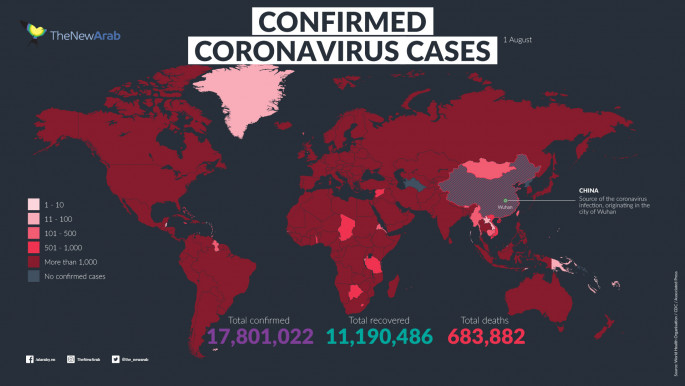Human Rights Watch implores Greece to reinstate migrants' 'fundamental right' to seek asylum
Human Rights Watch (HRW) has documented at least 625 people who arrived on the island of Lesbos since the beginning of March who have either been detained on the island in inhumane conditions, or taken to a closed centre on the mainland.
They have all been denied the right to seek asylum as per a Greek government decision on 1 March to suspend access to asylum for a month for those "irregularly entering" the country, and to deport them.
HRW has pointed out this goes against the EU Charter of Fundamental Rights, which guarantees the right to seek asylum. Greece's actions may also violate the fundamental principle of non-refoulement, which prohibits the return of refugees and asylum seekers to a country where they face persecution.
"For up to two weeks, the authorities have been holding women, men, and children – many of them fleeing war and persecution – in the open in cold temperatures, denying their right to seek asylum and preventing them from getting the humanitarian and legal assistance they need and are entitled to," said Belkis Wille, senior crisis and conflict researcher at Human Rights Watch.
"Greece may be facing challenges on many fronts, from the coronavirus to a surge in arrivals, but it does not mean it can suspend fundamental rights or humane treatment," she added.
Twitter Post
|
Arbitrary detention is also prohibited under international and European human rights law, as well as in Greek law.
"People will continue to arrive on the Greek islands and the authorities should not keep them in the open in poor and unhygienic conditions, barred from the asylum system," Wille said. "Such policies are abusive and illegal."
Witnesses said that new arrivals, cold and wet from their journey across the Meditarranean, had been kept in confined conditions, some without enough tents for shelter, and many without toilets, showers, or any running water.
The new arrivals included pregnant women, elderly and disabled people and it was unclear whether they were allowed necessary medical treatment.
On Tuesday Greece said that as a preventative measure against the COVID-19 outbreak, it would begin transferring those detained to closed centres on Greece's mainland. Those transferred are thought to be awaiting deportation to Turkey.
HRW warned countries to restrict rights as part of the public health emergency only on condition that this was "lawful, necessary, and proportionate as well as nondiscriminatory".
There are tens of thousands of asylum seekers in camps on the Greek mainland and islands near Turkey, and most of them are severely overcrowded.
Greek authorities announced on Tuesday it was to put refugee camps on lockdown, the first areas in the country to be hit with such measures.
Hundreds more arrived this month after Turkey announced it would no longer stop people from attempting to reach the EU - going against a deal reached with the bloc in 2016 - leading to a violent pushback by Greek border guards, who allegedly fired live ammunition at refugees.
Far-right mobs also patrolled the islands, beating up groups of migrants who had made the dangerous journey across the Mediterranean.
Follow us on Facebook, Twitter and Instagram to stay connected





 Follow the Middle East's top stories in English at The New Arab on Google News
Follow the Middle East's top stories in English at The New Arab on Google News

![Israeli forces ordered bombed Gaza's Jabalia, ordering residents to leave [Getty]](/sites/default/files/styles/image_330x185/public/2176418030.jpeg?h=a5f2f23a&itok=_YGZaP1z)
